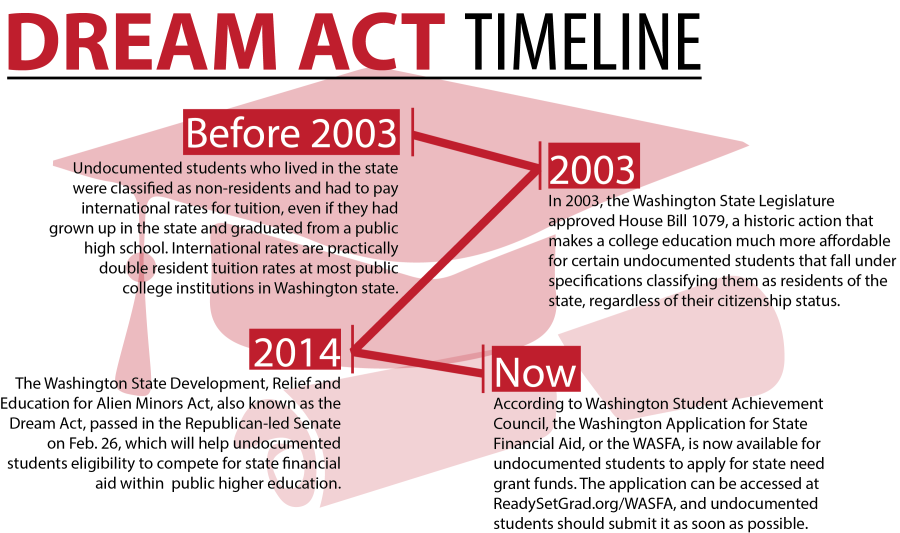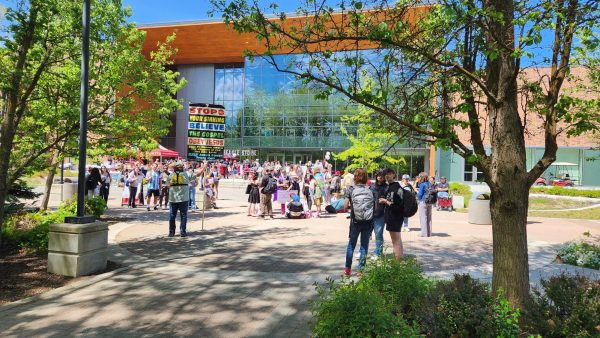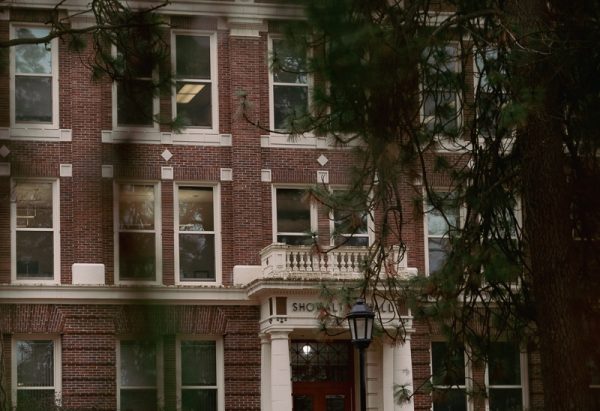Dream Act offers answers for undocumented students
The Latino community in Washington state, as well as at Eastern Washington University, plays a diverse role in politics, education and society.
With the recent passing of the Development, Relief and Education for Alien Minors Act, a special group within the community is being recognized: undocumented students.
The Washington State Dream Act, or HB 6523, passed in the Republican-led Senate on Feb. 26, and will help undocumented students compete for state financial aid within higher education.
Currently, students who are in the state and are undocumented are able to attend public universities as residents under HB 1079, yet have to pay for tuition through scholarships, private funds or out of their own pocket.
Dr. Martín Meraz-García, professor in the Chicano education program at Eastern and member of Washington Education Access Coalition for HB 1079 students, states that before HB 1079, which was passed in 2003, undocumented students had to pay international rates for a college education, even though they spent a majority of their life in the state and earned their high school degree.
“With that law, it allows students to come to our institutions,” said Meraz-García. “Our job is to serve students. We are not supposed to look at legal status because the law says that they can attend our university. If you’re a student and you’re undocumented, I got to treat you as a student. You’re paying tuition and you should have the same rights. And [undocumented students] don’t.”
The difference between HB 1079 and the Dream Act is that undocumented students do not have the eligibility to receive financial aid through state need grants with HB 1079. The Dream Act would help undocumented students pay for college through the help of state funds.
According to the National Immigration Law Center, the Dream Act would ultimately permit certain immigrant students who have grown up in the U.S. to apply for temporary legal status and to eventually obtain permanent legal status, as well as become eligible for U.S. citizenship if they go to college or serve in the U.S. military.
The HB 1817 bill report is a substitute bill that adds eligibility for the state need grant for individuals granted Deferred Action for Childhood Arrival status that meets a certain criteria under homeland security.
Resident students, as stated in the bill, have 13 classifications, yet the main ones say that students claim financial independence in Washington state and are dependent if one or both of their parents or legal guardians have maintained residence in the state for a minimum of a year prior to the start of class.
These various classifications allow students to pay resident tuition rates. However, the bill states that, with the exception that certain individuals are not citizens of the U.S., they are considered nonresident students for tuition purposes, unless they are granted Deferred Action for Childhood Arrival under homeland security through U.S. Citizenship and Immigration Services.
“Our job is to serve students. We are not supposed to look at legal status because the law says that they can attend our university.” – Dr. Martin Meraz-García
With all these rules and guidelines set in place, undocumented students are placed with a difficult obligation to get their foot on a university campus. The fear many undocumented students face toward being claimed as illegal by their peers has caused an unstable foundation for these groups of students to feel safe on campus or to represent themselves as equal.
In addition, many congressmen are opposing the bill because they claim there simply is not enough money in the higher education system. The question of whether undocumented students have the ability to obtain a college degree and find a job afterwards is being raised as well.
According to Dr. Rodolfo Arévalo, president of EWU, he said there are at least 100 to 150 undocumented students on campus. Many of these students endure a real struggle because they do not qualify for aid, so they have to rely on either private scholarships or scholarships that do not worry about whether they are a citizen or not. He clarifies, however, that money is very limited.
“It’s kind of hard to fund 150 students, so most of them have to end up working one way or another to support themselves going to school. It does become difficult,” said Arévalo.
He said that he has met undocumented students who have finished their doctorate degree, only to be unable to find a job after college.
“I’ve met students that have gotten as far as completing a law degree at UW and then trying to figure out ‘Okay, I got a law degree, but what do I do now? I can’t get a job. So where am I going to go?’” said Arévalo.
According to Arévalo, there are a lot of steps in helping undocumented students get through college and find a job afterwards.
“I think that the passage of them being eligible for financial aid is a big step in the direction but again, the question is ‘Okay, so we get them through college. Now, what?’” said Arévalo.
Meraz-García said that oftentimes, people do not understand that undocumented students pay taxes and file federal taxes, making it a very complex issue.
“When you hear from legislators who oppose something like the Dream Act, they will argue that it’s unfair that undocumented children get access to state financial aid when there is already plenty of need for native-born students. Of course they contribute. … They contribute to the economy in various ways,” said Meraz-García.
According to Meraz-García, he was working with an undocumented student in 2011. Meraz-García said that the student was struggling to find resources, resulting in the student dropping out of school. The student explained to Meraz-García that he could not pay for tuition and was behind on his payments. Meraz-García asked him how much he owed, which calculated to over $1,000.
“I paid for that so he could come back because I could see that this student just had amazing qualities. I just could not let him drop out,” said Meraz-García. “He came back and we had a long conversation. … I basically said to him that other students have managed to succeed despite their undocumented status, so you can do the same.”


















James Macdonald • Apr 25, 2014 at 7:10 am
Any state “Dream” Act does two things:
Makes it easier for illegal aliens to get seats at state universities and therefore makes it tougher for citizens of the state to gain entrance.
Raises taxes for the state’s citizens.